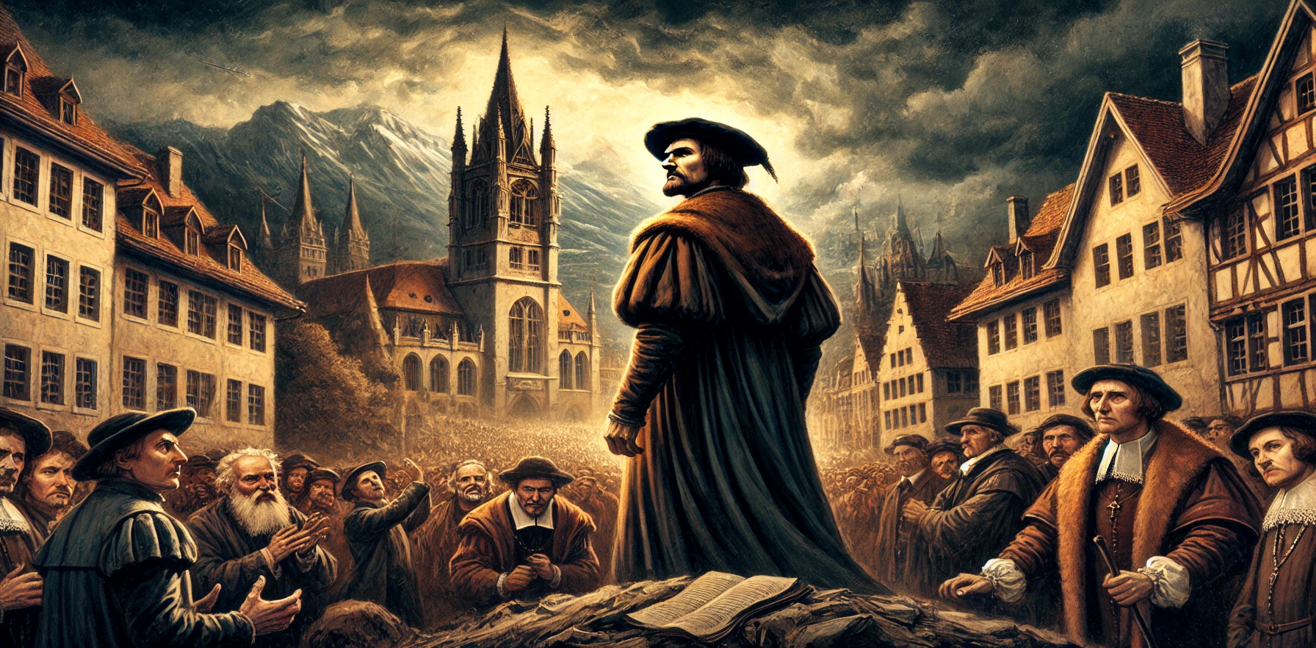Jean Calvin is one of the most prominent figures in Christian history and one of the leading names of the Reformation movement. In 1538, Calvin and his followers were exiled from Geneva. This event marked a significant turning point, not only for Geneva but for religious changes throughout Europe. In this article, we will examine the background of John Calvin’s exile from Geneva and the impact of this event in detail.
Who Was Jean Calvin?
Jean Calvin was born on July 10, 1509, in Noyon, France. He received religious education at a young age and moved to Paris to study law. However, due to his interest in the Reformation movement, he abandoned his legal studies and turned to theology. His work Institutio Christianae Religionis (Institutes of the Christian Religion), written in 1536, is considered one of the foundational texts of the Reformation movement. Calvin’s teachings, especially the concept of predestination, sparked debates in many parts of Europe.
Arrival in Geneva and Early Years
In 1536, Calvin arrived in Geneva and became one of the leaders of the Reformation movement there. He sought to radically change the religious and political structure of the city, aiming to establish a stricter and more disciplined religious governance. However, this approach was not welcomed by some groups in the city, leading to significant disagreements.
Exile from Geneva
In 1538, Calvin and his followers were exiled from Geneva due to the pressure of opposing groups in the city. Calvin’s strict religious rules and governance style were not accepted by the city’s more libertarian factions, leading to his exile. However, this exile did not last long. Calvin spent his exile years in Strasbourg, where he continued his contributions to the Reformation movement.
Return to Geneva and Theocratic Rule
In 1541, at the request of the people of Geneva, Calvin returned to the city. The religious and political chaos in the city increased the demand for Calvin’s strict governance. Upon his return, Calvin established a firm theocratic rule. This governance, with strict enforcement of religious laws, continued until Calvin’s death in 1564.
Calvin’s theocratic rule deeply impacted daily life in Geneva and transformed the city into the center of the Reformation movement. The merging of church and state in this governance system resonated not only in Geneva but throughout Europe.
Calvin’s Death and Legacy
Jean Calvin died on May 18, 1564, in Geneva. Even after his death, his influence continued, and he is considered one of the foundational figures of modern Protestantism. Calvin’s influence in Geneva left permanent marks on religious thought both in the city and across Europe.
The theocratic governance Calvin established and the religious reforms he introduced made Geneva not only a religious center but also an intellectual and cultural hub. His teachings and writings are still studied and debated by many theologians and scholars today.
Conclusion
Jean Calvin’s exile from Geneva and his return to establish a theocratic governance is one of the most significant events of the Reformation movement. Calvin’s strict religious rules and governance style made Geneva one of the most important religious centers of its time. This event holds a crucial place, not only in Calvin’s life but in the broader course of European history.
Calvin’s legacy continues today, and his teachings play an important role in modern Christianity. The system he established in Geneva and the reforms he brought about were significant developments that changed the course of history and continue to shed light on the future.

